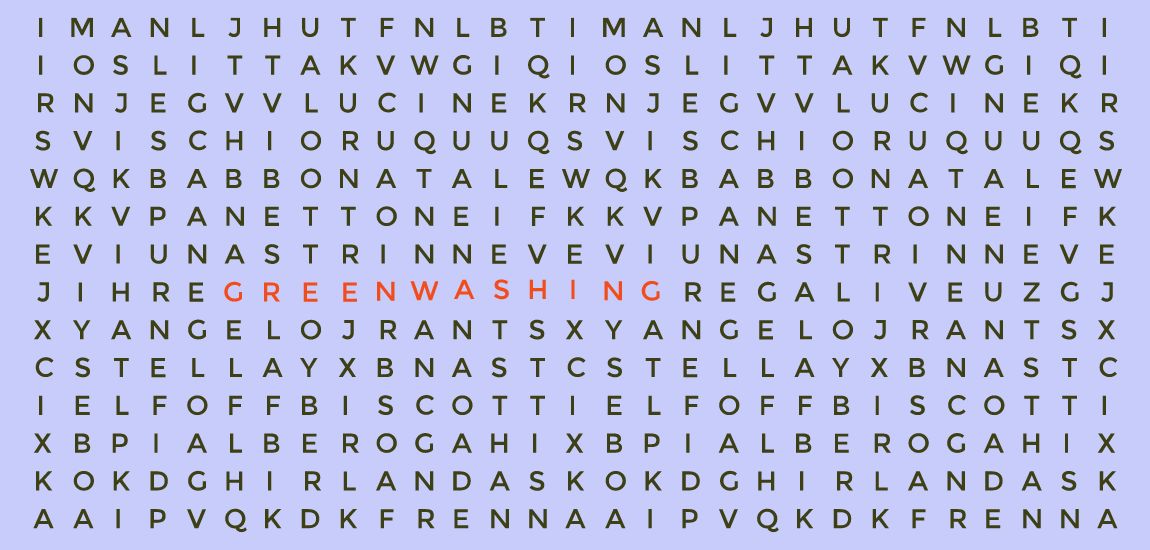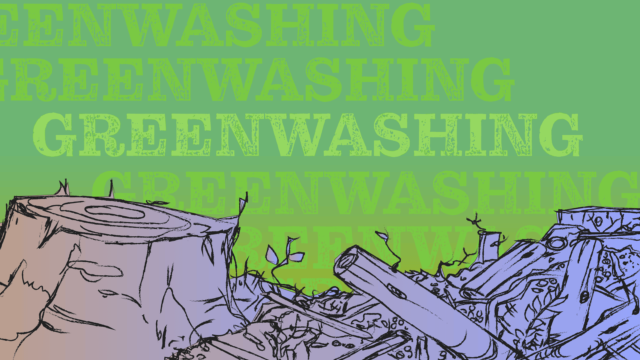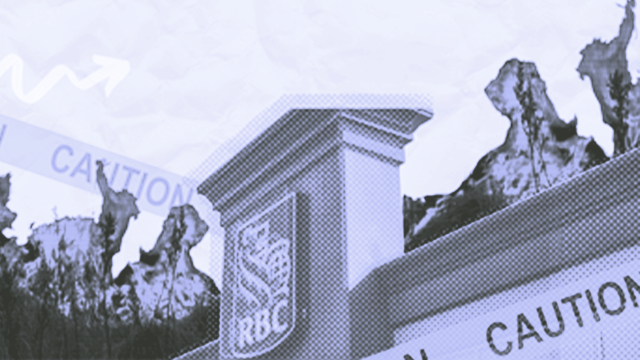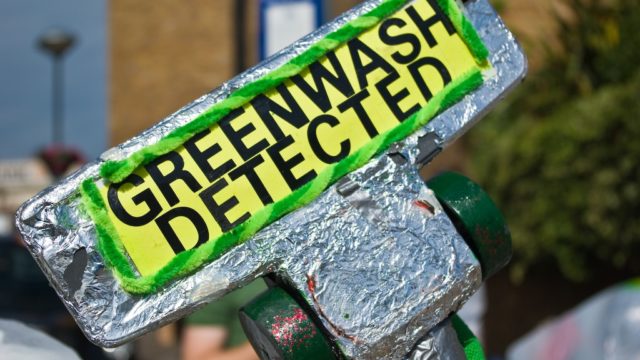What is greenwashing? It’s the practice of making something seem more environmentally-friendly than it is — whether a product, brand, company, or entire institution. Greenwashing can be intentional or unintentional. Regardless, there’s profit in it. And if companies are using deceptive marketing to dupe consumers, it is illegal.
Ecojustice uses the law to hold businesses to account for their environmental claims and so-called sustainable marketing. In 2022, we triggered a federal investigation into Royal Bank when they positioned themselves as supporting the Paris Agreement on climate change.
RBC bankrolls the fossil fuel industry to the tune of tens of billions a year. The very same fossil fuel industry that is actively destroying any hope of us meeting the Paris Agreement goals.
What are examples of greenwashing?
There’s a scene in the criminally underrated movie I Give It A Year which sees Rose Byrne’s character talking about wooing a new client. “So, remember to play up our ethical credentials,” she says. “[…] Our job is to convince people his solvents won’t render the planet a barren, lifeless husk unfit for future generations.”
When asked how, she suggests, “making the typeface green and yellow and sticking some sort of sunflower or butterfly on the logo. It’s textbook.”
Depressingly, it’s a textbook from which many Canadian companies , including financial institutions, are borrowing.
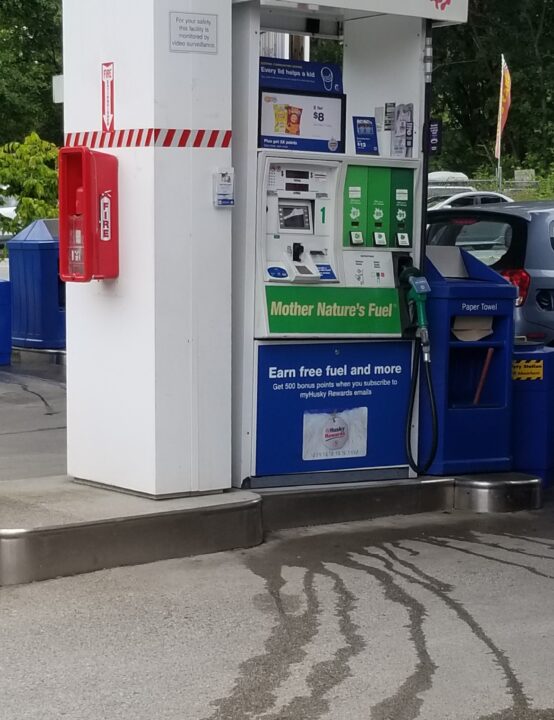
What are the top signs of greenwashing?
If a company can’t be precise about their definitions, that’s usually a red flag. Look out for vague terms such as ‘clean’ and ‘green.’
On the other side of the spectrum, there are phrases so hyper-specific (read: made-up) that there’s no easy way for consumers to know how the company defines that term.
For the purposes of not getting sued, we won’t name and shame any brands. But if you’re ever scratching your head wondering what something like ‘ethical consumerism plastic’ or ‘green petroleum’ means, there’s a good chance a marketing team came up with it to sell you something.
Other terms to look out for
- Carbon offset
- Compostable
- Degradable / Biodegradable
- Free of
- Less waste than / Less toxic than
- Made with renewable energy
- Made with renewable materials
- Nontoxic
- Ozone-safe or ozone-friendly
- Recyclable
- Recycled content
- Refillable
- Conscious
- Low carbon
- Net zero
- Plastic neutral
- Regenerative
- Sustainable
None of these words are necessarily evidence of greenwashing, but they’re just squishy enough to be manipulated.
Take compostable dog poop bags. Usually green — in colour, at least — these plastic sacks are the modern pet owner’s badge of honour. Yet in most cases, once filled, these bags are thrown in the bin and carted off to landfill.
Biodegradable bags require very specific conditions to break down, conditions which they never meet at the dump. In fact, the pressure and lack of oxygen in landfills means garbage is often ‘mummified,’ giving the compostable bag zero chance of decomposing.
It’s confusing, even for those in the know
Here’s the thing, it shouldn’t take you hours of research to know whether a product is lying to you. Companies should have to disclose proof of their environmental claims. Consumers shouldn’t be acting as watchdogs, that’s what regulators are for. In Canada, the federal Competition Bureau is one of the ways we force companies to own up and pay up when they’re caught greenwashing.
But, right now, it seems that companies are only too happy to follow the ‘ask forgiveness, not permission’ route meaning the onus on flagging greenwashing is on us, the consumers.
While that’s the case, the next time you’re humming and hawing over a purchase, consider this checklist.
- Can the claim be independently verified?
- Is it a term any other brand uses?
- Are they transparent about what meets their standards?
- Which other corporations work with them? Are they brands you trust?
The thing to keep in mind though, is that real change comes from systems change. We can’t ‘buy our way out’ of greenwashing. That means, yes, reporting an ad to Advertising Standards Canada or, if you’re online, reporting the ad directly to the platform which served it. You can also make a complaint to the federal Competition Bureau, although this is recommended for organizations rather than individuals.
You can also take photos or screenshots of greenwashing and post about them online. This helps spread the word and, if you tag the company involved or organizations with relevant followings, this can garner even more attention. We’ve created a ‘Greenwashing alert’ sticker that you can slap on Instagram Stories — just click the sticker icon in the top right corner of Stories and search ‘Ecojustice.’ You can also search ‘Ecojustice’ on GIPHY to find the sticker for use on other social media platforms.
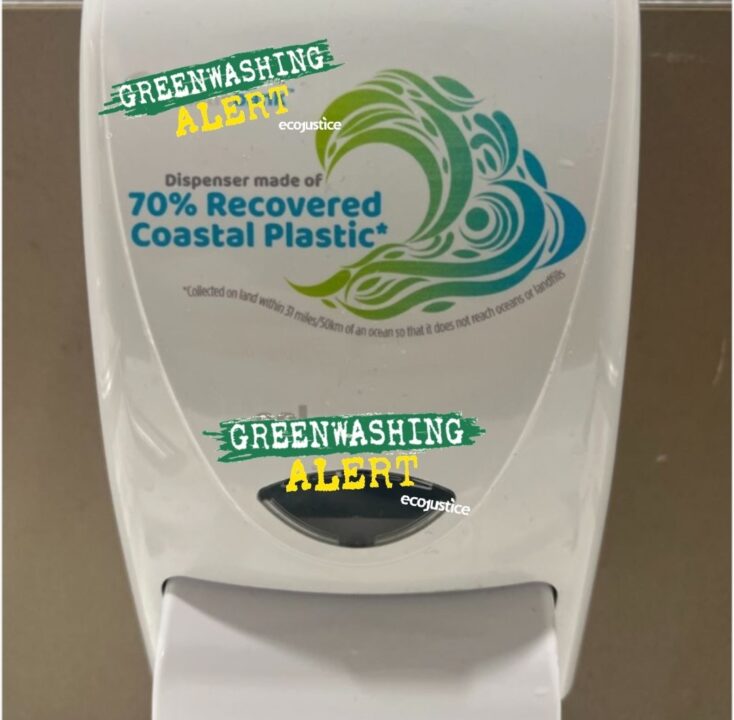
And what’s more, you can support organizations such as Ecojustice that stand up to corporate deceit. Using the power of the law, we dare to point out the truth; that the emperor’s green new clothes? Well, frankly, they’re a load of hot air.

